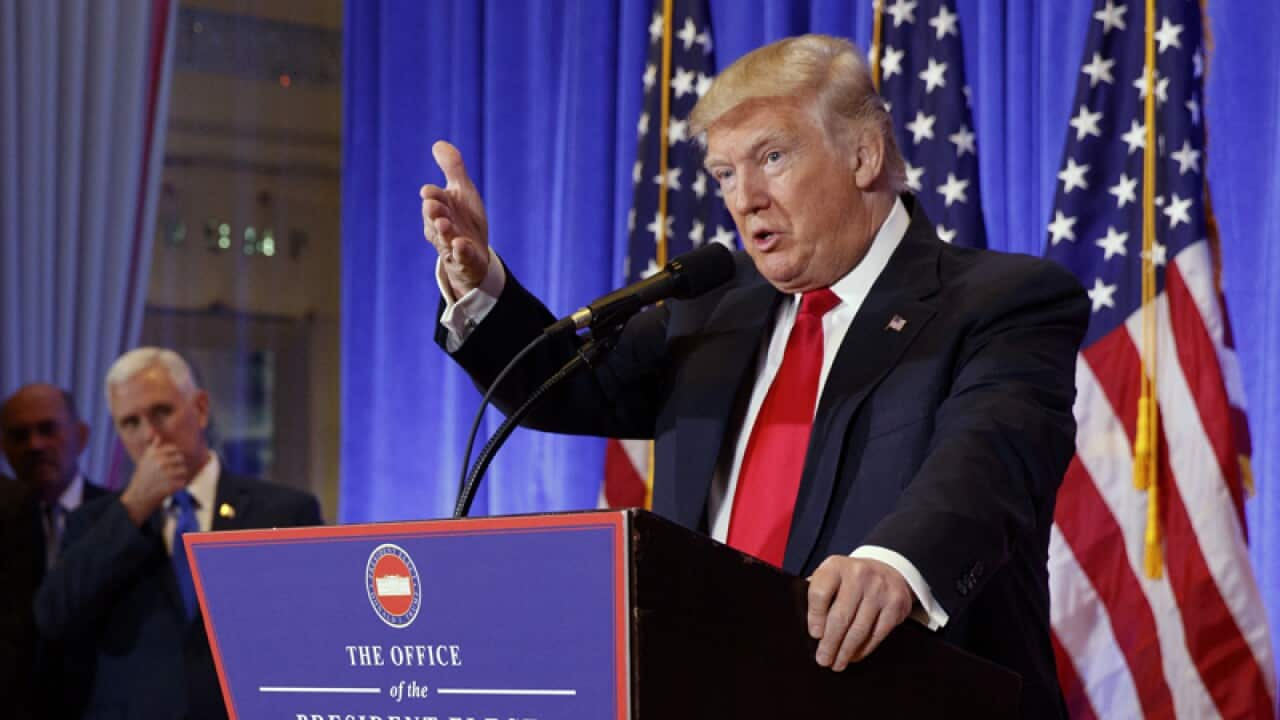A move by website BuzzFeed to publish unverified salacious claims about United States President-elect Donald Trump has reignited debate over media ethics.
On its website, BuzzFeed stated the dossier containing the claims include specific, but "unverified and potentially unverifiable allegations of contact" between Mr Trump's aides and what it calls Russian operatives, as well as "graphic claims of sexual acts documented by the Russians".
It said its reporters in the US and Europe had been investigating various alleged facts in the dossier, but had not been able to verify them, and that CNN had reported that a two-page synopsis of the information had been given to US President Barack Obama and to Mr Trump.
It said it published the full document so that "Americans can make up their own minds about allegations about the president-elect that have circulated at the highest levels of the US government".
Dr Matthew Beard, from The Ethics Centre in Sydney, told SBS he questions whether the public can draw solid conclusions based only on what was released by BuzzFeed.
"We need to examine what would be required in order for people to make up their own minds," he said.
"It's divorced from all context and it's without us being able to understand who these sources are.
"Could a reasonable person acting in good faith actually make up their minds or is it going to skew their thinking in some way?"
Julian Disney, a law professor from the University of New South Wales, said while some of the more explicit claims should not have been published, most of it was justified.
“I think some of the criticism is misguided," he said. "These were clearly published as allegations.
"That doesn't mean you're home free and you can publish whatever you like, but it doesn't mean you have to fully verify them, especially when in the very nature of many of these allegations, they were not going to be verifiable.”
But Professor Disney said he did have reservations about disclosing the source of the material.
"I gather in earlier versions that had been circulated, the sources were not disclosed in as much detail as they are in this publication," he said.
That's something publications are usually very careful about, but I think in this case (BuzzFeed) haven't been sufficiently careful."
Australian journalist Peter Greste criticised BuzzFeed's decision, saying the news media must filter out anything known not to be true or that cannot be verified.
He suggested such actions could have an impact on public trust in journalists, which was critical in helping him and his two Al Jazeera colleagues secure release after they were imprisoned in Egypt in 2014 on charges relating to their journalism.
“It was that fundamental confidence in our integrity that meant we were able to get so much public and political support," he said.
"If we keep chipping away at the integrity of the industry in general, then it will be hard for us to call on the public when we need them.”










